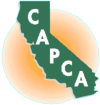Winter 2011
Campus News, Research Updates
compiled by Deborah Mathews
Lily research for better nematode control using natural compounds
Deborah Giraud, UC Cooperative Extension (UCCE) Farm Advisor in Humboldt and Del Norte Counties, attended the International Society for Horticultural Science 2nd International Symposium on Genus Lilium last August in Italy. She presented a poster and paper on the nematode control work she and Dr. Becky Westerdahl, UCCE Specialist at UC Davis, have been conducting on Easter lilies at the research station in Smith River for many years. The symposium had eight tracts: botany, agronomy, genetics, physiology, breeding, postharvest, pathology and propagation. Presenters represented many countries including Japan, Korea, China, Iran, the Netherlands, Russia, Israel and Italy. Topics included issues related to many species and hybrids, production techniques and much more.
Giraud and Westerdahl’s paper was titled “New Products to Improve Growth of Field-Grown Easter Lily Bulbs.” Field-grown bulbs require both preplant and current season controls for pathogens caused by fungi and nematodes in order to propagate salable bulbs within a three year-period. The authors tested many natural products such as sesame seed oil, meadowfoam seed meal, mustard bran, soapbark tree bark (Quillaja), DiTera fungal toxin, and two fungi Paecilomyces and Muscodor alongside commercial standard nematicide products. The parameters measured were bulb circumference to indicate growth, ratings of root health, measurements of nematode presence, and ten other criteria of interest to the growers. Untreated controls were tested as well, and not hard to beat, as growing field-grown bulbs with no controls for root-lesion nematodes (Pratylenchus spp.) resulted in very poor, unsalable bulbs. Twenty-six treatments were equivalent to one or both of the commercial standards but some preplant soil treatments were still necessary. When used alone, the natural products tested did not perform well enough to replace a commercial standard. For the full paper, please email ddgiraud@ucdavis.edu or bbwesterdahl@ucdavis.edu.
Dr. Deborah Mathews to speak at the Society of American Florists meeting in San Diego
Dr. Deborah Mathews, UCCE Specialist in Plant Pathology/Ornamental Crops at UC Riverside has been invited to speak on Feb. 25, 2011 at the Society of American Florist (SAF) 27th Annual Pest and Disease Management Conference. The meeting will take place on Feb. 24-26 at the San Diego Marriott Mission Valley hotel, located at 8757 Rio San Diego Drive in San Diego, California. The conference features two days of educational sessions led by top experts, a table-top trade show of the latest tools and products, and an optional tour of local growing operations. For more information or to register, visit the SAF website at http://www.safnow.org/.
Using solar power to its full advantage atop shadehouses
Dr. Heiner Lieth at UC Davis is currently researching the feasibility of a new shadehouse technology for the container nursery industry. This is based on solar panel technology developed by Solyndra (Fremont, California) consisting of photovoltaic (PV) tubes arrayed as panels. Such panels are designed for installation on flat-roofed commercial buildings where they produce electricity when sunshine strikes them. The panels are installed with the tubes aligned north-south so that they passively track the sun and no mounting hardware is needed to articulate the panels. Dr. Lieth noted that if the gap between the tubes could be made a bit wider than in the customary panel products, the panels might let enough light through to allow plants to grow underneath them.
Solyndra is currently funding research at UC Davis to test the feasibility of using this technology to produce shade while still providing plants with adequate light to grow and producing electricity to run various functions. To investigate if plants grow differently under the new PV technology in contrast with conventional shade systems, a shadehouse was recently built at UC Davis consisting of three shade treatments. Early results show that the technology is feasible for nursery growers and that for some crops (e.g. citrus) the photosynthetic patterns suggest that growth may actually be better under the photovoltaic shade system compared with conventional shade cloth systems. For more information, contact Dr. Lieth at jhlieth@ucdavis.edu.

Shadehouse at UC Davis with sections constructed using conventional shadecloth or Solyndra photovoltaic panels to evaluate plant growth under these different types of shade. (photo by Heiner Lieth)
Dr. Deborah Mathews is UC Cooperative Extension Specialist in Plant Pathology, Department of Plant Pathology and Microbiology, UC Riverside.












